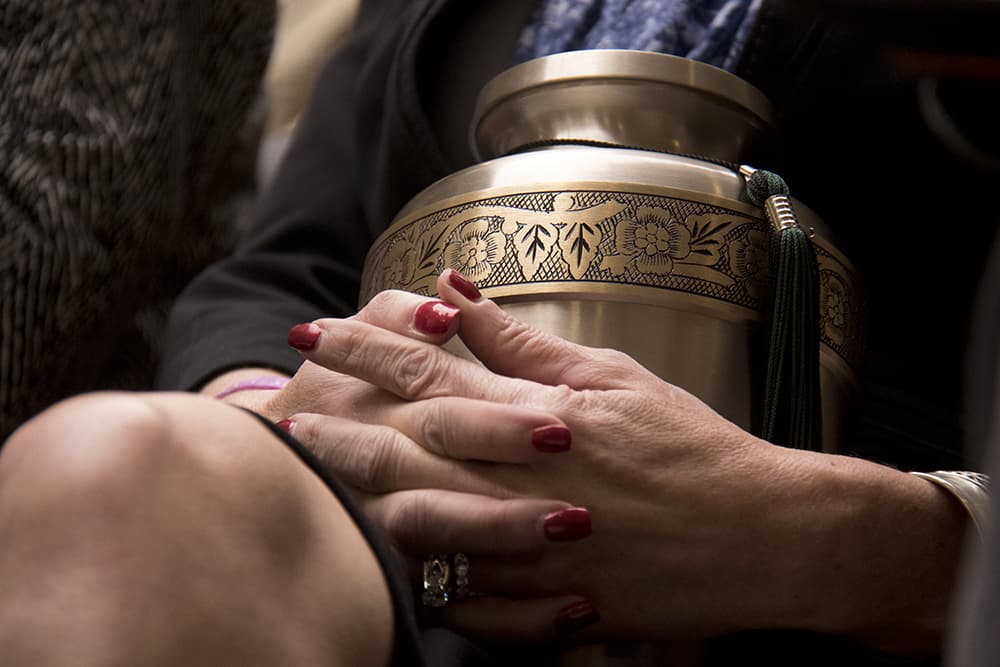
State legislators on Wednesday listened to a series of people who said that their grievous personal losses could have been averted if law enforcement took a hard-line approach on immigration, sometimes speaking in terms that portrayed portions of the immigrant population as predatory or malicious.
In the same hearing, advocates for immigrant communities spoke almost until midnight, warning that a bill aimed at "sanctuary cities" could harm the tens of thousands of people living without legal status in Colorado, once again creating a fear and distrust.
At issue was a proposal that would compel cities, towns and other governments to cooperate more closely with federal immigration authorities, going so far as to make officials who support "sanctuary" policies personally liable for the crimes of undocumented immigrants.
Bills similarly targeting sanctuary cities have landed in statehouses around the country, including in Pennsylvania, Ohio, Virginia and Texas. In Colorado, the Democrats on an influential House committee essentially shut down the bill in a party-line vote just after midnight on Thursday. That still leaves open the possibility that it will return in the state Senate.
"I do believe that America faces some pretty serious problems," said Rep. Edie Hooton, a Boulder Democrat, just before the committee voted. "Unfortunately, I don’t think it has anything to do with criminal activity or undocumented workers, or immigrants. I think they’re being scapegoated."
What this bill would have done:
Rep. Dave Williams and Sen. Vicki Marble, both Republicans, are the sponsors of House Bill 1134.
The proposal defines "sanctuary" and makes a felony for elected officials to render "assistance to an illegal alien" by creating sanctuary laws and policies friendly to undocumented immigrants.
A "sanctuary jurisdiction" is defined in the bill as any place that "prohibits or in any way restricts" its employees from cooperating and communicating with federal immigration officials, among other conditions.
"If we're going to create these environments, then we need to own it," said Williams, who described himself as Latino.
The bill would have allowed anyone who is the victim of a crime committed by an undocumented immigrant to sue local officials who aided in creating sanctuary policies, with liability of up to $2 million. That would apply to crimes committed by any undocumented immigrant, not just those with a prior criminal record who had avoided deportation.
It also would have required police and others to immediately report suspected unauthorized immigrants and to hold them until immigration authorities could come -- and the proposed law would have exempted itself from review by Colorado courts.
Rep. Mike Foote, the committee chairman and a Democrat representing east Boulder County, said the bill was "inflammatory" and "insufficiently vetted."
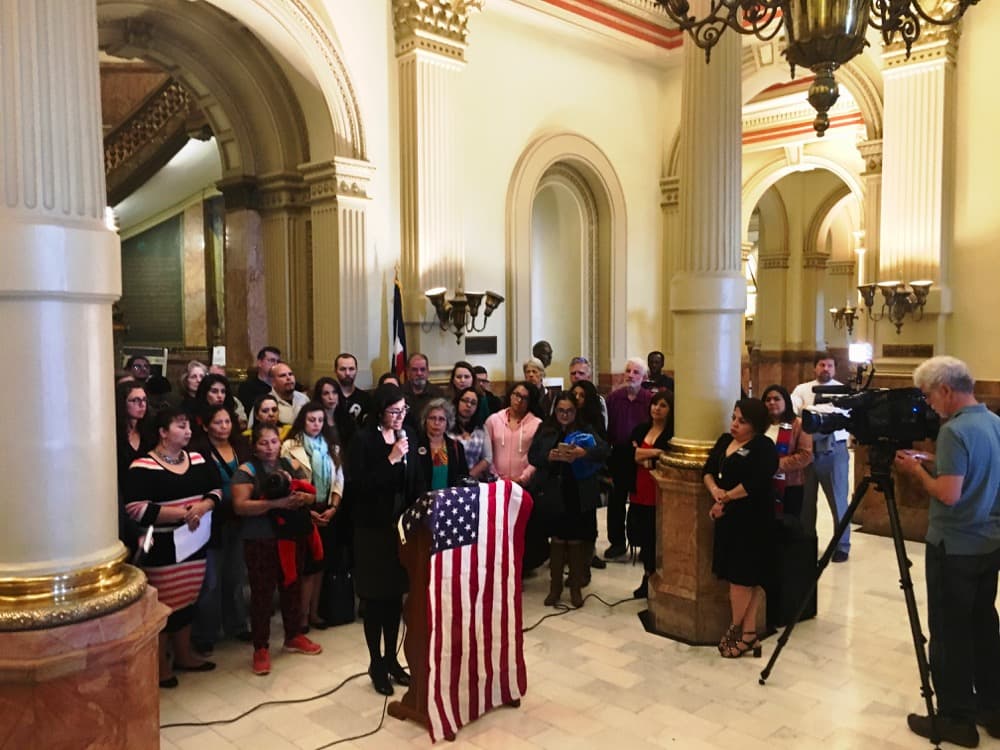
This is the latest example of a long-running theme: Crime ignites demands for tougher laws.
The debate in Colorado was particularly heated by a recent, high-profile crime: An immigrant named Ever Valles is alleged to have taken part in a robbery attempt that left a man dead at an RTD light-rail station.
Valles had been arrested last year in Denver on weapons and vehicle theft charges. Immigration authorities had marked him for deportation as a "known gang member," 9News reported, and asked that local authorities notify them of the 19-year-old's release from jail.
Immigration and Customs Enforcement said they weren't notified in time to take him into federal custody and presumably deport him. Two months later, he was accused in the murder.
“This is why we need to hold lawless politicians accountable,” Williams tweeted. “Shame on Dems for allowing this.”
In essence, the argument is that if Valles were deported earlier, then a murder victim would still be alive -- and that local authorities could have done more to get him gone. Williams brought several people with stories in the same mold to the committee hearing on Wednesday night.
"Too many of the millions of illegal immigrants ... are destroying the preferred quality of life for American citizens," said Christine Goodman, saying that they are "killing, raping" and "taking our jobs."
Goodman said her husband was killed in a hit-and-run crash by an undocumented driver who had numerous previous drunk-driving arrests.
One woman blamed immigrants for the spread of opiate drugs that killed her husband, and some argued that police and courts treated undocumented people lightly in order to keep them from deportation.
Victoria Tomkins said that her husband had been injured in a car crash by someone without legal status, and that the other driver's lack of insurance has put a financial burden on her family.
"You can feel a lot of different ways until it impacts you," Tomkins said. "When it impacts you, all of a sudden everything changes."
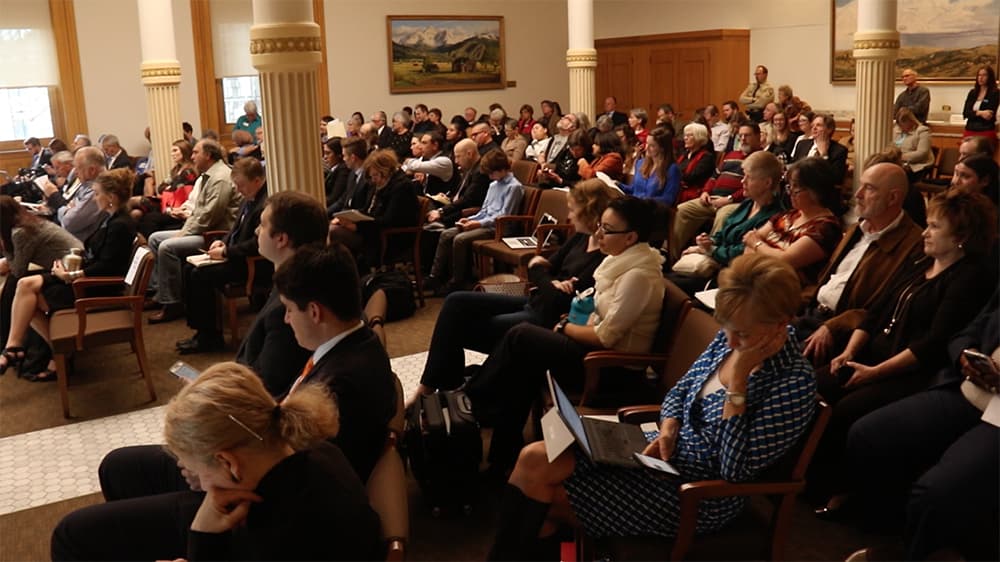
Immigration advocates counter that it's not local law enforcement's job to enforce immigration law.
Opponents of the bill said that extensive cooperation between local and federal enforcement can make undocumented communities fear the police, discouraging them from reporting crimes.
The Denver-Aurora-Lakewood metro may have 130,000 immigrants living here illegally. In recent years, state legislators have moved to incorporate those people further into society. The state recently has granted in-state tuition to undocumented immigrants; created a driver's license program for them; and repealed a law that had required law enforcement to hand immigrants suspected of being here illegally over to the feds. (Read our profile of life for young and undocumented people.)
"No matter how much suffering she went through, we were not allowed to call the cops. We were forbidden because that was a death sentence for our family," said Ana Temu, speaking at almost 11 p.m. of the strain that deportation threats had put on her family at a time when her aunt suffered domestic violence.
Alexandra Flores, speaking in Spanish with a translator, told the story of her nephew, whom she said was murdered just days after he was deported to Guatemala. As she told the story, a man sitting near me criticized her for not speaking English.
Karla Gonzales Garcia, of the Colorado Organization for Latina Opportunity and Reproductive Rights, said that the bill denigrates people as "illegal aliens."
"We should not have to worry that a speeding ticket will mean that our sister or brother or friend is detained," she said. Another woman said that her son had been seriously injured by an immigrant driver, but that they had forgiven the man and opposed the bill.
Rep. Jovan Melton questioned the basis of the bill, saying that the crimes described by the bill's supporters "could have happened with anyone, regardless of whether they were a U.S. citizen or an undocumented immigrant."
Ronald Sloan, former police chief for Arvada, said that the Colorado Association of Chiefs of Police objects to the idea of forcibly shifting police priorities.
"In order to meet those community demands, the resources of police agencies are stretched extremely thin ... CACP strongly opposes any shift in that primary responsibility and role," he said, adding that Colorado police officers "have and always will continue to work very cooperatively with our federal enforcement counterparts."
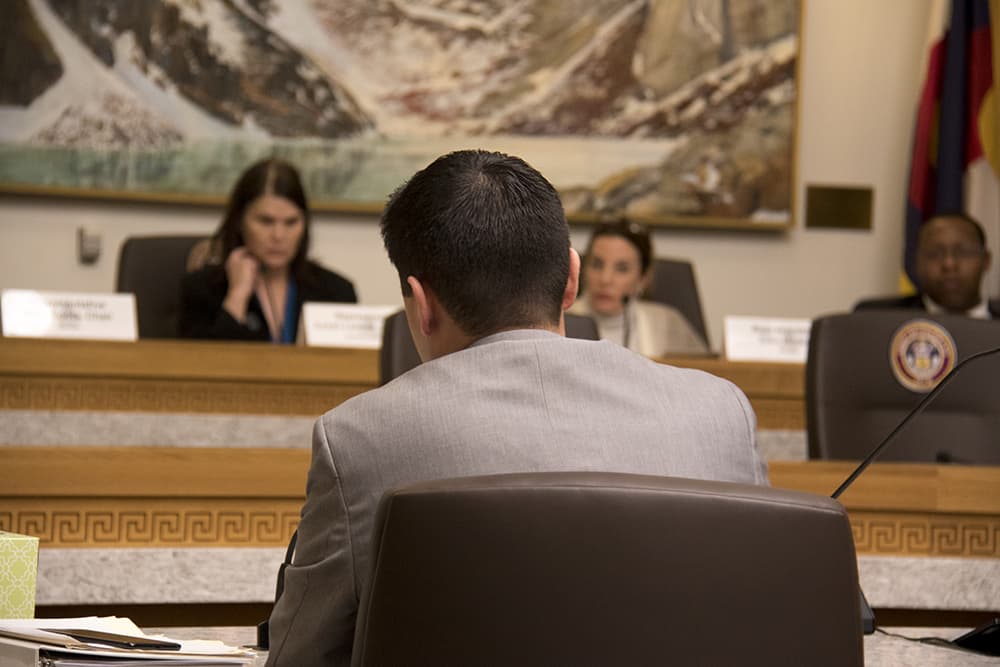
There were numerous legal concerns raised about the bill.
One central question is whether local jails should hold suspected undocumented immigrants until federal agents can come to pick them up.
All Colorado jails submit information about inmates to federal authorities, according to Chris Johnson, executive director of the County Sheriffs of Colorado. This biometric information allows the federal identification of undocumented immigrants -- but it sets up another problem.
ICE often requests that sheriffs hold onto people with suspected immigration issues.
Colorado sheriffs in recent years have tended to ignore those requests.
The reason the localities don't comply, largely, is that these "ICE holds," or "detainers," are part of the civil immigration system, while jails are part of the criminal system, according to Chris Lasch, a law professor with the University of Denver.
The Fourth Amendment of the U.S. Constitution generally requires warrants signed by judges or magistrates before an arrest can be made, Lasch said. So, by this logic, a request from ICE doesn't give a local jail a solid legal reason to hold onto someone for any extra time once they've posted bond. (ICE's requests cannot count as probable cause to indicate that immigration law has been violated, he said.)
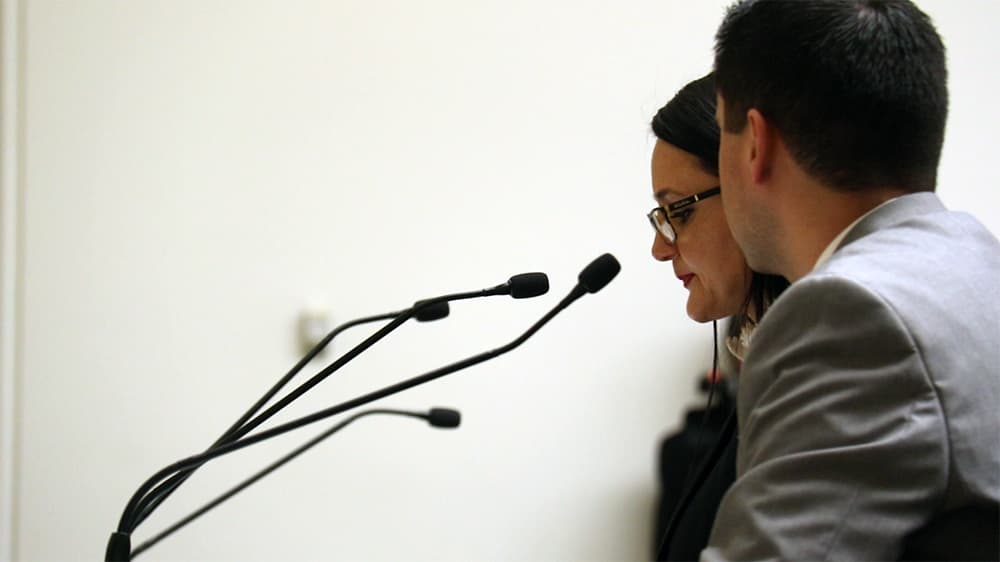
The state sheriffs group would appear to agree.
“If federal authorities present us with a warrant or other detainer, signed by a judge or a magistrate, we hold those persons for federal authorities to pick up,” CSOC said in an official position paper posted to its website.
“However, the courts have ruled that we have no authority to hold arrestees on administrative holds that have not been reviewed and approved by federal judges or magistrates."
Many sheriffs' departments changed their policies after the ACLU of Colorado obtained a $30,000 settlement from Arapahoe County for a domestic violence victim held on an immigration detainer.
Questioned on this, Williams, the bill sponsor, said that undocumented immigrants may not have constitutional rights.
Separately, representatives on the committee questioned whether it's constitutional to institute possible criminal penalties for a legislator's vote on sanctuary policies. Kathy White, representing the Colorado Fiscal Institute, also argued that there was virtually no limit on the types of requests that the feds could make of Colorado under the bill.
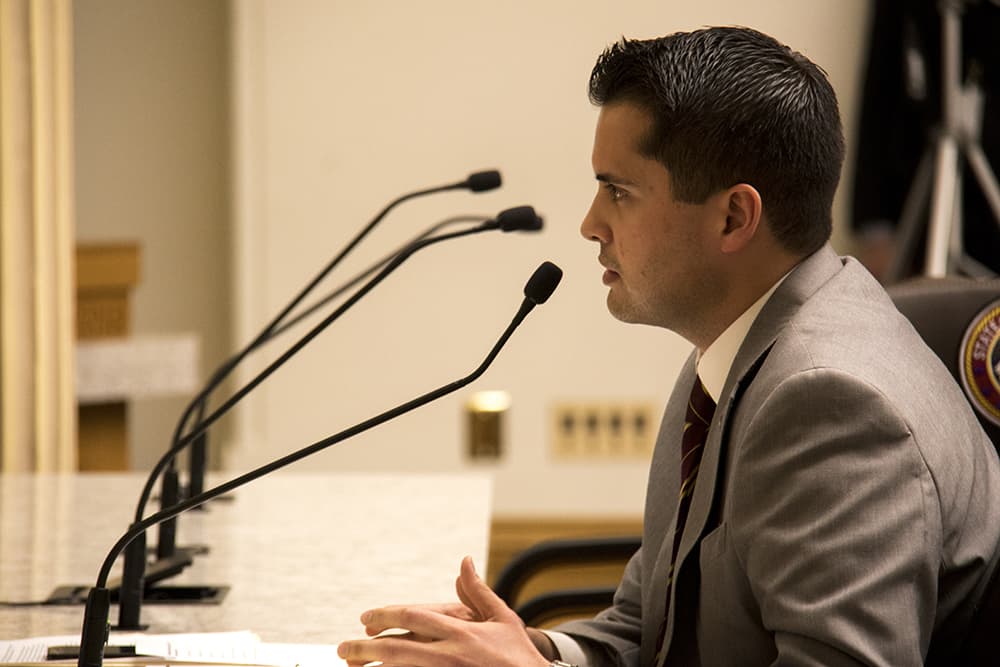
The bill died, but the testimony pointed at the next fight:
Law enforcement's statewide resistance to this proposal is based in large part on the legal arguments. Former congressman Tom Tancredo, who spoke in the favor the bill, said that federal authorities should do more to present bulletproof documents.
"I don’t for a moment intend to create some sort of excuse for ICE not doing their job," he said. "They have an absolute responsibility, it seems to me. My guess is under this administration they may very well become more aggressive in this regard."
Legally strengthening those documents would presumably require greater resources for immigration enforcement, which is just what President Donald Trump has promised.
Should that happen, we may see an even greater test of the "sanctuary city" question: If the federal government brings a stronger legal case, will local law enforcement comply? Will the cities resist an immigration crackdown if it's tailored to people with criminal records? How high are the walls of a sanctuary city?











